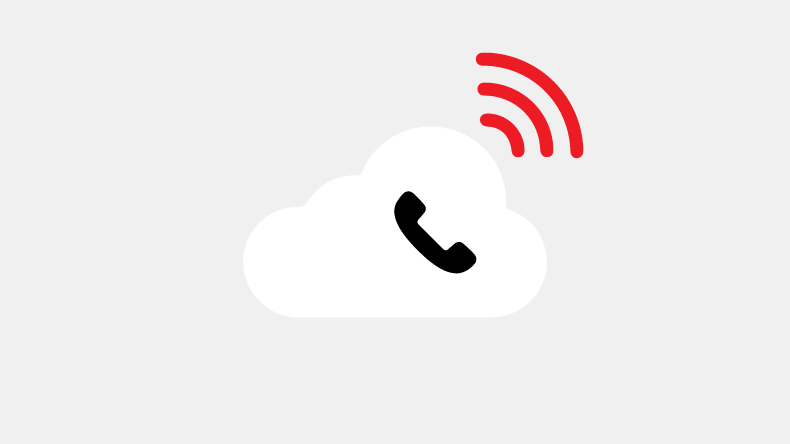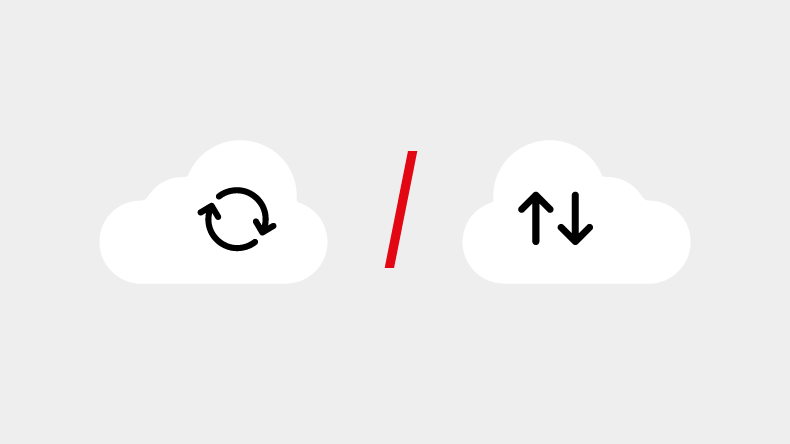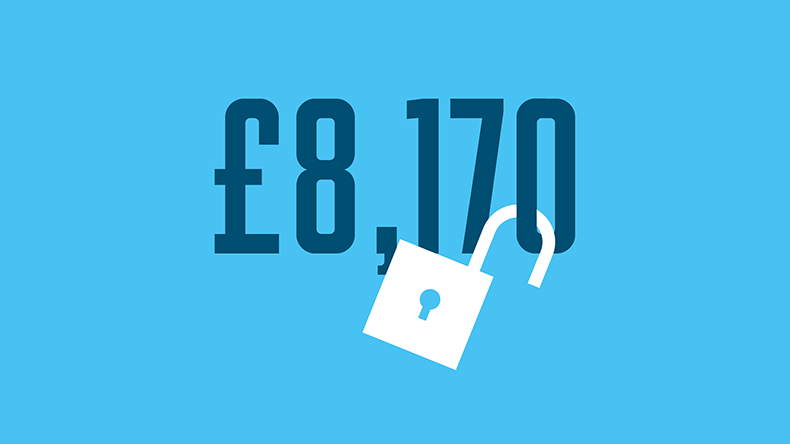Cloud Telephony

Most businesses are operating in a global environment. With that brings greater complexity and challenges. To succeed in today's economy, it is essential for companies to find resourceful ways to communicate internally and externally.
There are several different factors that need to be considered when managing communications.
In this article, we’ll discuss some of the most common communication problems faced by businesses operating traditional PBX (Private Branch Exchange) systems and how they can be resolved using cloud telephony.
So, what does cloud telephony offer?
In its simplest form, cloud telephony offers the ability to make and receive telephone calls across an internet connection, instead of traditional PBX systems or telephone system.
But there's much more to it than that.
Let's take a look:
Contents
- What is cloud telephony?
- Why is cloud telephony important?
- How does cloud-based telephony work?
- What are the main features of hosted cloud telephony?
- What is the difference between VoIP and cloud telephony?
- What are the advantages of a cloud phone system?
- What are the disadvantages of cloud telephony services?
- How do I get a business phone system like cloud telephony?
- Final thoughts
- Did you know?
What is cloud telephony?
Cloud telephony is a form of Unified Communications as a Service (UCaaS) technology that allows users to make phone calls using digital devices, as opposed to a traditional PBX system.
Calls are routed through the cloud, which means they can be made from anywhere in the world if there is an internet connection.
With cloud telephony, you’re not just moving phone calls to the cloud.
You’re also connecting them with:
- Your CRM
- Instant messaging
- Team meetings
- Other business processes
With greater integration, your business will see a boost in efficiencies and improvement in the overall customer experience.
Why is cloud telephony important?
Cloud telephony is important because it delivers a host of benefits that are unavailable with traditional telephony systems.
These benefits include scalability, ease of use, lower total cost of ownership, and more.
This means that businesses can:
- Greatly improve collaboration within their teams
- Increase efficiencies across the company
- Save money on their phone bill.
Furthermore, cloud telephony retains familiar features such as voicemail-to-text transcription, call forwarding and caller ID.
Additional features include:
- Accepting calls on a device of your choice
- Hybrid comms - integrated video, voice, and text chat in one app
As a result, cloud telephony is an important tool for any business looking to improve its communication.
Since 2020, business has changed substantially with many professionals found working at home, in offices or cafes.
According to research by Onecom, 4 in 5 workers use business mobiles and technology more often than they did previously.
Moving away from on-premises PBX provides greater flexibility for your employees who are increasingly mobile.
If you're not already, you should be considering tools like cloud telephony to improve communication and collaboration within your business.
So, how does cloud telephony work?
How does cloud-based telephony work?
Cloud telephony works by routing calls through remote servers instead of using physical on-premises equipment in your office. This can save you from having to buy, install, and maintain your own telephony system. Calls are routed through your supplier's data centre, which handles all the routing and switching for you.
This provides freedom and flexibility by routing calls to a virtual number instead of a physical handset.
Cloud calling can be made from anywhere with an internet connection, and the service can be scaled to meet any demand.
You don't need new phone numbers when you make the switch.
Companies typically port their DDI numbers to the cloud service and you can route calls according to predetermined rules.
This could mean sending it to:
- Multiple devices at once
- A colleague
- Or a pre-recorded message
Your users will not notice a difference in how calls work.
However, the cloud system makes it much easier for you to:
- Scale the cloud service
- Manage users
- Offer extra services
As a cloud telephony provider, we would recommend a 3CX business phone system.
3CX is a cloud-based phone system that allows you to make and receive calls over the internet. It connects your office phones to the cloud, allowing you to make and receive calls from anywhere in the world. Calls are routed through your computer or smartphone, making it easy to stay connected while on the go. 3CX also offers a range of features that can help improve your productivity, including voicemail-to-email, call recording, and video conferencing.
Setting up a 3CX phone system can be a daunting task.
But don't worry, we're always on hand to help!
First, let's look at what's needed:
- A computer or mobile device with an internet connection
- A 3CX license key - A free one is available for 4 or 8 simultaneous calls, including unlimited extensions, iOS & Android apps, and auto-provisioning.
- A SIP trunk
- An IP phone or SIP client (optional)
Once we have everything we need, we would follow these steps:
- Deploy 3CX in the cloud
- Register an account on cloud.3cx.com
- Import license key
- Set up the SIP trunk
- Add user extensions
- Configure settings (voicemail, call routing, etc.)
- Install 3CX client on a computer or mobile
- Test the setup
Points 1 and 3 are irrelevant if we're hosting directly with 3CX.
With 3CX's online dashboard, you can manage your cloud telephony system from anywhere in the world.
The dashboard provides:
- An overview of your system status
- Allows you to easily configure your settings
- Provides detailed call logs and reports.
You can also use the dashboard to manage users and set up phone extensions.
What are the main features of hosted cloud telephony?
The main features of hosted cloud telephony solution can include a wide range of phone system features.
Here are just a few:
- Call on any internet connected device – handset, headset, desktop, laptop, or mobile device (using free Android/iOS apps). You can switch over to mobile connectivity (3G/4G/5G) as a backup if you lose internet access or power at your site
- Unlimited minutes to local, national and UK mobile numbers. Free calls between colleagues (even mobile ones), plus significantly cheaper international calling.
- Comprehensive exchange functions as standard – call transfers, call forwarding, call parking/pickup, auto attendant (‘Press 1 for…’), music on hold, hunt groups, intercom/paging, company directory, intelligent voice recognition (Say “accounts” to speak to accounts) and more
- Offer callers a call back option if they’re in a queue
- Monitor incoming calls and manage your switchboard on-screen
- Integrate your existing CRM so you can launch calls with a click. Inbound calls can be linked to customer records. The system integrates with most CRM systems
- Full voicemail capability, including transcription, forward to email, and multiple voicemail inboxes
- Collaborate with built-in one-click voice and video conferencing (web), including screen sharing, pre-uploaded presentations and more
- Instantly check colleagues’ presence and status, preventing unnecessary call transfers and making it easy to collaborate internally
- Easily connect multiple office locations, remote workers or travelling salespeople, or support hot-desking
- Instant messaging and collaboration tools
- Automatically record and store all calls and voicemails
- Sharpen up performance with real-time reports on call numbers by extension, call duration, waiting times, missed calls, abandoned calls and more.
- Multiple, international numbers can be provisioned for local calling in the callers’ locality.
All under one unified platform that can be applied across multiple sites.
Unified communications bring all these tools together so that your teams can benefit from several different functions, including further advanced features should you need them.
What is the difference between VoIP and cloud telephony?
Put simply, cloud telephony is a "service", VoIP is a technology which powers it.
VoIP stands for Voice over Internet Protocol and refers to the use of the internet to carry voice calls.
With cloud telephony, as well as using the internet to carry phone calls, your phone system is hosted on a cloud platform.
This means that you don't need any special equipment - you can use any internet-connected device to make and receive calls.
Cloud telephony services are also generally more affordable than traditional VoIP technology.
What are the advantages of a cloud phone system?
A cloud telephony system can bring many advantages to a business.
Let's look at some below:
#1 Increased flexibility
Cloud communications are a great way to increase flexibility in your business.
With cloud hosted telephony, you can add or remove extensions instantly.
You can also configure your cloud phone system from a computer or mobile device, or handset.
This makes it easy to work with colleagues wherever they are.
Including internationally!
😎
#2 Cost savings
Cloud technology can save your business money over the longer term, making it very cost effective.
There's no need to worry about pricey technical contractors.
With cloud telephony, the management of the cloud phone system is taken care of for you.
Plus, cloud telephony products are typically less expensive than on-premises business phone systems.
#3 Scalability
Cloud hosted telephony is a highly scalable and customisable business phone system.
If you need to add ten new members to your cloud telephony account, or require a new customized feature, it can be taken care of quickly and easily.
Whether you're adding 1, 10 or 100 new users, no additional telephony equipment is required.
So, if you're looking for a solution that can grow with your business, cloud telephony is a great option.
#4 Highly customisable
Cloud telephony services are great for businesses that need to make quick changes to their cloud system.
If you need to make a small change, you can usually do it yourself.
If you need a bigger change, your cloud telephony service provider can usually do it for you quickly.
#5 Increased mobility
It’s a great way to manage your phone system wherever you are.
With cloud telephony, you can change answering rules, access voicemail and fax messages and view call activity, regardless of your location.
#6 Robust disaster recovery
With a telephone system installed in-house, you take on all responsibility for your own infrastructure, data backup and business continuity.
If the system goes down, so do your phones – and nobody can call in or out until it’s up and running again.
With cloud telephony, all those worries disappear.
For example:
With Nutanix HCI infrastructure, your phone system runs on a dedicated virtual machine specially designed to bounce back from disaster with minimum downtime and data loss.
Nutanix HCI stores a daily ‘snapshot’ of all your data, including all your call recordings and custom configurations.
If your system fails, simply restore the last usable snapshot and you’re back on the road within moments.
No more, if your office is inaccessible, you can't service your customers.
Calls can be answered regardless of where your staff are.
What are the disadvantages of cloud telephony services?
Many businesses may choose to manage services through the cloud.
Cloud phone services can be very helpful to almost any enterprise but still present certain challenges.
Let's look at some of them below:
#1 Security
Because cloud telephony systems are hosted off-site, there is a greater risk of security breaches. Hackers can potentially gain access to sensitive information or even sabotage the phone system.
Top Tip 💡
Check previous reviews to see if the provider had any previous security breaches.
#2 Reliability
Cloud telephony systems are reliant on an uninterrupted internet connection.
If there is an outage, customers may not be able to make calls
Top Tip 💡
To get round this, you can always log in to your cloud PBX via your mobile phone.
#3 Cost
In the short term, cloud telephony may be more expensive than a traditional telephone system.
Especially, if you need to purchase additional features or bandwidth.
Top Tip 💡
Watch out for providers with high call costs.
How do I get a business phone system like cloud telephony?
When managing business calls for your company, we recommend you use the following steps:
#1 Do your research
It's important to do research on the different providers before you do anything else.
This way, you can be sure to pick the provider that best suits your needs and offers the features you want.
Some of the features to look for when choosing cloud telephony for your business include:
- Auto attendant - This allows callers to reach a designated person or department without having to speak with a live operator.
- Call routing - This enables you to direct calls to specific extensions, voicemail boxes, or other phone numbers based on the time of day, the caller's location, or the type of call.
- Conference calling - This feature allows multiple people to participate in a call at the same time.
- Voicemail to email - This sends voicemails as attachments in an email message so that you can listen to them on your computer or mobile device.
Top Tip 💡
Look for solutions that integrate with existing communication platforms used by your team.
Staff forced to use one app for instant messaging and video calls, and another app for telephony will rapidly get frustrated by the lack of cohesion.
#2 Compare features
When you are looking for a cloud telephony service provider, it is important to compare the different providers and the features they offer.
This way, you can be sure to find the one that best suits your needs.
Auto attendant, conference calling, and voicemail to email are good features to have.
Top Tip 💡
Check if features are included or priced as optional extras.
#3 Ask for a demo
When you are choosing a cloud telephony provider, it is always a good idea to ask for a demo.
This will let you see how the cloud telephony service works and if it is the right fit for your business.
#4 Consider pricing and bandwidth needs
Cloud telephony providers offer a wide range of pricing options to suit businesses of all sizes.
It's important to consider how much bandwidth you'll need, and whether you'll require additional features.
Many providers also offer add-on features such as voicemail-to-email and caller ID, which can be helpful for businesses that want to track their calling statistics.
Top Tip 💡
While price should be a consideration, it shouldn't be the most crucial one.
For that, we recommend service levels.
#5 Check customer reviews
Always check previous customer reviews to:
- Get a sense of the provider’s customer service
- Understand what features are important to you
- Determine how cloud telephony will fit into your business
- Gauge the provider’s overall customer satisfaction
Top Tip 💡
Look for providers with high customer service ratings.
You’ll be amazed how bad some providers are.
(Especially, the more popular brands)
😉
#6 Choose a cloud telephony provider that meets your business needs
When it comes to cloud telephony providers, there are many to choose from.
But not all providers are created equal.
You need to find a provider that fits your specific business needs.
Here are some reasons why you should choose a cloud telephony provider that fits your needs:
- Cost effective - Save you money in the long run
- Scalability - Able to scale with your business as it grows
- Reliability - Always have your calls answered
- Features - A wide range of features that can meet the needs of your business
Final thoughts
Cloud telephony will play a huge role in the future of business communications.
Especially, with the ISDN switch off coming in 2025.
The advantages of cloud telephony include:
- Cost savings
- Scalability
- Ease of use
Granted it has some disadvantages, such as potential security risks but it’s advantages far outweigh them.
Cloud telephony is one of the best options for businesses looking to improve their communication infrastructure.
One we would highly recommend.
We really hope you enjoyed our guide to cloud telephony.
Now we’d like to hear from you:
Do you have any further questions about this topic?
Perhaps you are considering it now for your business?
Either way, let us know your thoughts.
Did you know? 💡
We specialise in business communications.
We can help with advice, installations, migrations, support, and backup solutions for cloud telephony services.
Feel free to get in touch or give us a call on +44 (0)1603 431200 today.
We look forward to hearing from you.
Back to the blog.
From our blog
View articlesSign up to our newsletter
The latest insights, articles, and resources direct to your inbox.





